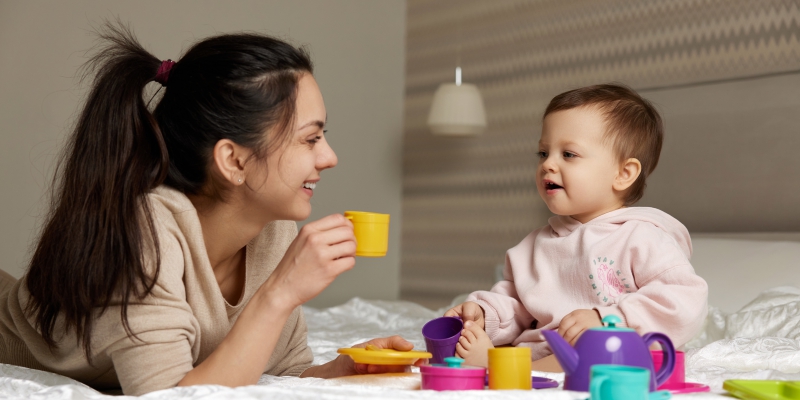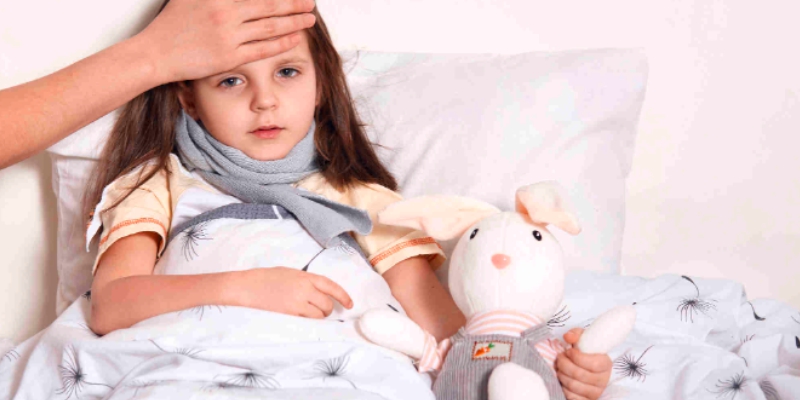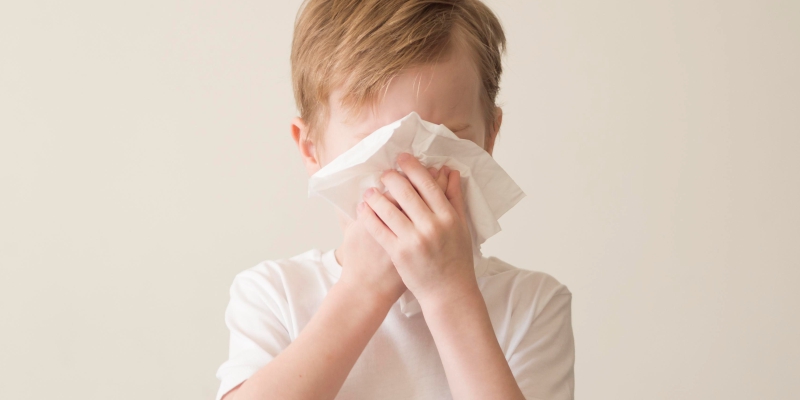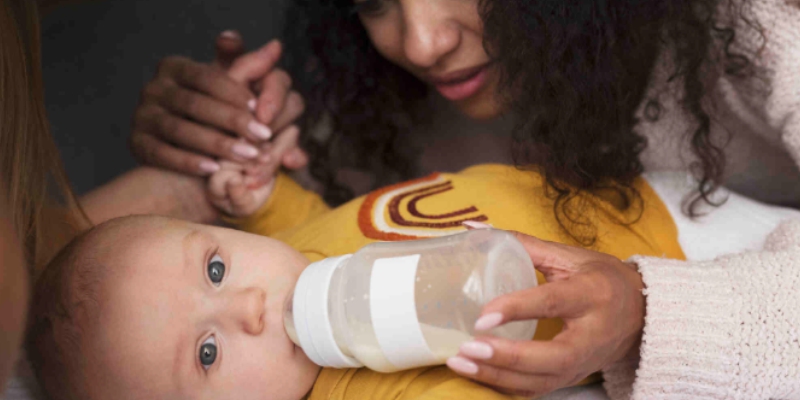Accidental Poisoning and Food Poisoning in Kids: First Aid and Emergency Guide
Every parent knows that children are naturally curious explorers, eager to touch, taste, and investigate the world around them. Unfortunately, this innocent curiosity can sometimes lead to accidental poisoning. Whether it’s ingesting household cleaners, medication, or eating contaminated food, children are at a higher risk of poisoning incidents compared to adults.
In fact, poisoning control centres receive over one million calls each year concerning poison exposure in children under five. Surprisingly, more than 90% of these accidents occur at home. Even a small amount of a common household product can have harmful effects, which is why being prepared with the right knowledge and quick response is crucial.
This guide aims to help parents understand the most common poisoning hazards, recognise symptoms, and provide essential first aid. You’ll also learn what to do after poisoning and when to seek emergency or specialised care.
Common Causes of Accidental Poisoning in Children
Poisons can lurk in places you would least expect. Common household hazards include medications, cleaning supplies, pesticides, and even plants.
In the instance of cosmetics and personal care products (like lotions or nail polish remover) are a leading cause of child poisonings. Other culprits are:
- Medicines and supplements: Both prescription and nonprescription drugs (pills or liquids) can be dangerous if swallowed by a child.
- Cleaning products and chemicals: Detergents, bleaches, disinfectants and solvents in the home can poison a child.
- Personal care items: Perfumes, mouthwash, hand sanitisers and cosmetics often contain toxic substances.
- Plants and berries: Some houseplants and garden berries are poisonous when eaten.
- Pesticides and insecticides: Products used for pest control (rodent poison, bug sprays) are very toxic.
- Carbon monoxide: This colourless gas from heaters or car exhaust can poison children who breathe it (use carbon-monoxide detectors in living areas).
- Button batteries: These small batteries (found in toys, remotes, and watches) can burn tissue if swallowed.
Keep all these items locked up and out of reach of young children.
Food Poisoning in Kids: Causes and Triggers
Food poisoning occurs when children eat food or drink water contaminated with germs or toxins. Common triggers include:
- Bacteria and viruses in food: Germs like Salmonella, E. coli, Listeria or norovirus in undercooked meat, eggs, dairy or poultry can cause illness.
- Raw produce and unclean water: Unwashed fruits and vegetables or unsafe drinking water can carry pathogens.
- Improper food handling: Food left at room temperature too long or prepared on dirty surfaces can spoil and make children sick.
Symptoms of food poisoning in children often include stomach cramps, nausea, vomiting, diarrhoea and fever.
These usually start hours to days after eating the bad food. To help prevent food poisoning, always wash hands before meals, cook foods thoroughly (especially meats and eggs), and refrigerate leftovers promptly.
Recognising Poisoning Symptoms in Children
Children may not be able to tell you what is wrong, so watch for poison symptoms such as:
- Vomiting or diarrhoea (especially without a fever): Sudden vomiting or diarrhoea can signal swallowing something harmful.
- Breathing problems: Coughing, wheezing, trouble breathing or choking may mean an inhaled toxin or a severe reaction.
- Drowsiness or confusion: Extreme sleepiness, irritability or odd behaviour can occur with many poisons.
- Burns or redness: Blisters, burns or swelling on the lips or in the mouth (and excessive drooling or strange odours) often indicate a caustic substance was swallowed.
- Seizures or collapse: If a child has a seizure or loses consciousness, this is an emergency.
Other clues include unusual stains on clothing, a missing medicine bottle or an empty chemical container nearby. Any of these signs after possible exposure should prompt emergency action.
First Aid for Poisoning
If you suspect poisoning, take swift action:
- Remove the poison: Get any exposed substance away from the child. If something is still in their mouth, have them spit it out or gently remove it from the mouth. Keep the poison container or label – the doctor will need to know exactly what was taken.
- Do NOT induce vomiting: Never try home remedies like having the child drink milk, salt water or vinegar, and do not use syrup or ipecac. These methods can do more harm than good.
- Flush skin or eyes: If a liquid or powder chemical touches the child’s skin, immediately remove any contaminated clothing and rinse the skin under running water for 15–20 minutes. If the chemical gets into the eyes, flush the eyes with cool water for 15–20 minutes.
- Move into fresh air: If the poison was inhaled (fumes, carbon monoxide, smoke), take the child outside into fresh air immediately.
- Call for help: Dial emergency services (112 in India) or your local poison control centre right away. In India, you can also call 1066 (National Poison Information Centre) for poison emergencies. Do this even if the child seems OK, because a specialist can give guidance on what to do next.
- Keep the airway clear: If the child vomits, turn them onto their side so they won’t choke. If the child stops breathing or has a seizure, call emergency services immediately and begin CPR if you are trained.
These steps can reduce the poison’s effects while you get medical help on the way.
After Poisoning: Monitoring and Next Steps
Stay with the child and keep them comfortable. Even if they appear fine initially, keep watching for any changes. Follow any instructions given by poison control or doctors. Look for worsening symptoms. Get emergency help if the child:
- Becomes very sleepy, hard to wake or confused.
- Has trouble breathing or persistent coughing/wheezing.
- Develops a high fever, or repeated vomiting/diarrhoea (risking dehydration).
- Shows any new severe symptom (pain, rash, bleeding, seizures).
At the Motherhood Hospital, doctors may run tests (bloodwork, ECG, X-rays) and give treatments like activated charcoal, IV fluids, or breathing support. Provide them with the poison’s container or a picture of it. Inform them exactly what happened, including how much was taken and when. Follow the medical team’s instructions on care and follow up.
Home Remedies for Poisoning: Risks and Cautions
Many traditional home remedies for poisoning are unsafe:
- Never force vomiting or use ipecac: Once common, syrup of ipecac is now discouraged. Forcing a child to vomit can cause choking or further injury.
- Toxic natural remedies: Some home cures are poisons themselves. For example, experts warn that as little as a teaspoon of eucalyptus or tea tree oil can put a toddler into a coma. Any essential oils or herbal mixtures should be kept away from kids.
- Baking soda myth: Giving baking soda to a baby with colic can upset body salts and cause brain swelling or worse.
- Activated charcoal only if advised: While charcoal can absorb some poisons, it must be given by medical professionals. Do not give charcoal, any other medicine, or home antidote to the child unless a doctor or poison specialist tells you to.
In general, if you’re not sure what to do, call a professional. Trying home fixes can delay real treatment or make things worse.
When to Seek Pediatric Emergency Care
Call an ambulance or rush the child to a hospital immediately if the child:
- Is unconscious, limp or having a seizure.
- Cannot breathe normally or is choking.
- Drink a large amount of any poison (medicine, alcohol, chemicals) even if they appear awake.
- Has any severe symptom that alarms you, or symptoms that get worse despite first aid.
Hospitals like Motherhood Hospital have pediatric emergency specialists experienced in poisonings. They offer advanced treatments such as IV fluids, oxygen or ventilation, specific antidotes, and round-the-clock monitoring with child-size equipment. Quick professional care can be life-saving in these situations.
Prevention is the best strategy. Keep all medications, cleaners and chemicals locked up. Use childproof latches on cabinets. Teach older children not to touch or share unknown substances. Being prepared with this knowledge can save your child’s life.
Final Thoughts
Accidental poisoning and food poisoning can be frightening, but prompt action and good preparation make a difference. Always keep poisons out of children’s sight. If poisoning occurs, remove the danger, rinse any affected areas, and call for help immediately. Don’t rely on unproven home remedies for poisoning. In serious cases, get your child to a hospital like Motherhood Hospital as quickly as possible. With the right first aid and medical care, most children recover well from poisoning incidents.
Sources:
- CDC – Food Safety: Signs & Symptoms of Food Poisoning (Centres for Disease Control and Prevention).
- MedlinePlus – Poisoning First Aid (NIH).
- Mayo Clinic – First Aid: Poisoning Basics.
- Nationwide Children’s Hospital – Food Poisoning (Food-borne Illness) and Facts About Poisons.
- Poison Help (HRSA) – Poison Control Centre guidance.
- MedIndia – Poisoning: First Aid and Emergency Guide

















